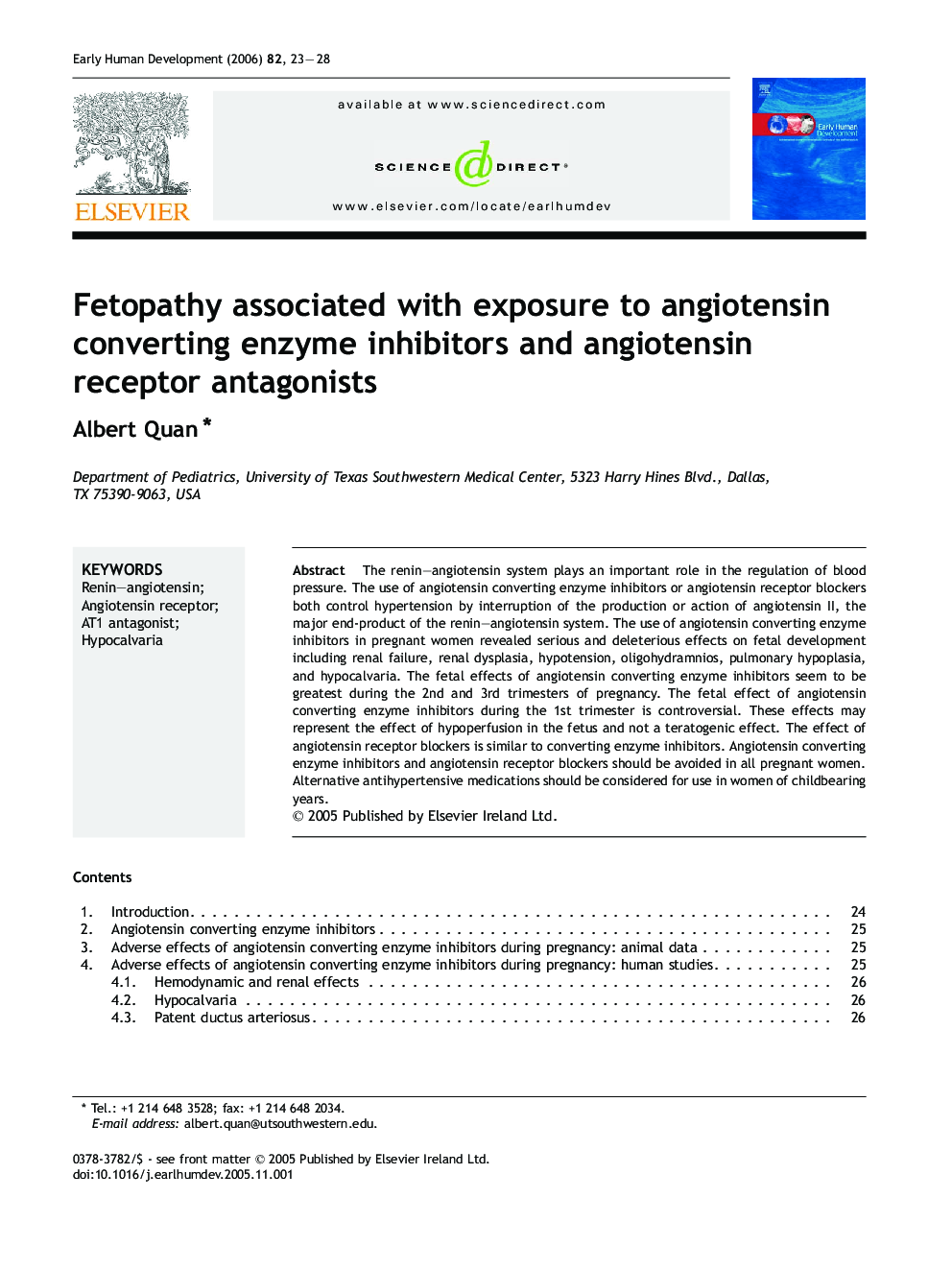| Article ID | Journal | Published Year | Pages | File Type |
|---|---|---|---|---|
| 3917983 | Early Human Development | 2006 | 6 Pages |
The renin–angiotensin system plays an important role in the regulation of blood pressure. The use of angiotensin converting enzyme inhibitors or angiotensin receptor blockers both control hypertension by interruption of the production or action of angiotensin II, the major end-product of the renin–angiotensin system. The use of angiotensin converting enzyme inhibitors in pregnant women revealed serious and deleterious effects on fetal development including renal failure, renal dysplasia, hypotension, oligohydramnios, pulmonary hypoplasia, and hypocalvaria. The fetal effects of angiotensin converting enzyme inhibitors seem to be greatest during the 2nd and 3rd trimesters of pregnancy. The fetal effect of angiotensin converting enzyme inhibitors during the 1st trimester is controversial. These effects may represent the effect of hypoperfusion in the fetus and not a teratogenic effect. The effect of angiotensin receptor blockers is similar to converting enzyme inhibitors. Angiotensin converting enzyme inhibitors and angiotensin receptor blockers should be avoided in all pregnant women. Alternative antihypertensive medications should be considered for use in women of childbearing years.
